
N. Roland
Libraries
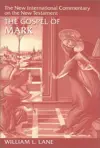

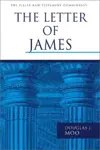

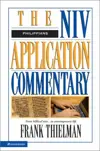

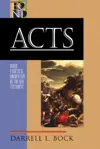

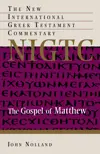

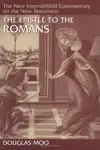



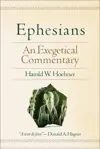

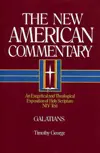

Reviews
Leviticus. ApOTC. IVP Academic, 2007.
Nobuyoshi Kiuchi’s Leviticus is the third volume published in the Apollos Old Testament Commentary series. The series “aims to to take with equal seriousness the divine and human aspects of Scripture. It expounds the books of the Old Testament in a scholarly manner accessible to non-experts, and show s the relevance of the Old Testament to modern readers” (from back cover). The format is similar to that of the Word Biblical Commentary series with a translation, notes, form and structure, comment and finally explanation.
Kiuchi is a Japanese Old Testament scholar from Tokyo Christian University. His inclusion in this series reflects what appears to be an intentional effort by the editors to assemble a fairly international team of writers. Kiuchi did his PhD under Gordon Wenham who produced what has been by widely considered on of the best commentaries on Leviticus currently available. Wenham’s pupil has given us a commentary that rightly belongs on the shelf next to his own work.
This commentary gives helpful textual, philological and historical comments, but its greatest strengths are in the areas of literary analysis and theology. Kiuchi argues that Leviticus is not giving laws to a people already “saved” by the exodus, but rather teaches them their need for salvation (p. 28). He sees Leviticus as essentially a commentary on Genesis 3 and derives many of his interpretations of cleanness laws from their connections to the account of the fall. This analysis yields some very insightful connections. The external rituals must be connected to an internal holiness that confronts the problem of sin. The purpose of the laws are “to make the Israelites aware of their egocentric nature, to destroy this nature, thereby leading them to a state of holiness characterized by a heart free of selfish motives” (p. 46). For the Christian, the destruction of this nature is only accomplished via identification with our crucified Lord, the ultimate sacrifice. Kiuchi regularly helps to make these connections to NT theology.
This theological reading is remarkably helpful for understanding the text and its contemporary significance. My biggest criticism of this commentary is that at times it appeared to this reviewer that Kiuchi had failed to make his logic explicit. Often data is presented with the straightforward claim that the data implies a certain conclusion. However, it was unclear what the connection was between the data and the conclusion. I found myself wondering if the data couldn’t be interpreted another way. Without being explicitly shown the logic behind the argument, I was unsure how to assess it. So much of the commentary depends on some of these conclusions drawn that it did seem to weaken the commentary ever so slightly.
That being said, this is an outstanding commentary that deserves to be used frequently by preachers looking for help with this book which can be obscure to many. I expect this commentary will help bring Leviticus to life for Christians today.
IVP provided me with a free copy with no expectation of a favorable review.
Exodus. ApOTC. IVP Academic, 2017.
T. Desmond Alexander’s Exodus is a landmark new volume in the Apollos Old Testament Commentary series. The series “aims to to take with equal seriousness the divine and human aspects of Scripture. It expounds the books of the Old Testament in a scholarly manner accessible to non-experts, and show s the relevance of the Old Testament to modern readers” (from back cover). The format is similar to that of the Word Biblical Commentary series with a translation, notes, form and structure, comment and finally explanation.
Alexander’s Introduction at 32 pages is shorter than I expected for a commentary of this size. However, it is a very effective and efficient summary of Alexander’s approach. He takes an agnostic position on authorship, though he argues that a high view of Scripture and taking Jesus’s words at face value do not require holding to Mosaic authorship, only that the Pentateuch is in some way associated with Moses. He also takes a rather skeptical posture towards source criticism. He does not deny that the final author used sources, only that we can delineate those sources with any confidence. His focus in the introduction is on the theological message and historicity of Exodus. Alexander argues that Exodus is primarily about Yahweh inviting Israel into a covenant relationship with himself in order to know him better. This thesis is compelling and makes for a highly coherent and even devotional commentary. He also commits significant space to discussing the archeological evidence of the Exodus. He argues for the historicity of the Exodus and argues ably that a 15th century exodus is not ruled out by the evidence.
The commentary section itself is remarkably full. He gives full notes on lexical and textual issues, also remarking on source critical issues while consistently showing how inclusive such studies are. Alexander’s comments are wonderfully insightful, addressing the questions one would hope for with an eye on both the historical situation and contemporary significance. His discussions on the divine name and the ten words will aid the preacher immensely. He is also imminently readable. Despite the deep learning, I found the prose very engaging.
In the Explanation section, Alexander summarizes his exegesis helpfully and does some biblical theology with an eye towards New Testament significance. I am always intrigued to see how an Old Testament scholar sees their text in light of the NT. Alexander makes helpful connections without being overly creative or speculative. On the divine name, he points to Jesus’s I AM statements and on the great theophany at Sinai, the greater mountain of Zion pointed to by the author of Hebrews.
This commentary is a tremendous accomplishment. It is a delight to read and provides what pastors and scholars need to not only understand Exodus better, but more importantly to come to know the God of Israel better. This is now my #1 commentary on Exodus.
IVP provided me with a free copy with no expectation of a favorable review.
1 and 2 Samuel. ApOTC. IVP Academic, 2009.
David Firth’s 1 & 2 Samuel is a large entry in the Apollos Old Testament Commentary series. The series “aims to to take with equal seriousness the divine and human aspects of Scripture. It expounds the books of the Old Testament in a scholarly manner accessible to non-experts, and show s the relevance of the Old Testament to modern readers” (from back cover). Firth strikes a nice balance in seeking to meet these aims. The annotated translation gives notes on Hebrew lexicography and grammar with the Hebrew transliterated for those without Hebrew. The format is similar to that of the Word Biblical Commentary series with a translation, notes, form and structure, comment and finally explanation. Firth uses the Format section to fit each pericope into the larger narrative of Samuel. In the “Explanation” section he does some very helpful biblical theology. He draws out the major themes that the author is exploring. This serves the pastor in a major way.
Firth treats Samuel as a united work of theological history, and he defends its historical value. However, he adds, “What we might say about Samuel’s historical intent, it is also a work of theology. Kingship’s story is not interpreted as something deriving from political and military forces. Instead, it is ineluctably tied to Yahweh’s relationship with Israel, a relationship that reaches a new level in the establishment of the Davidic covenant (p. 21).” This overall approach guides Firth and makes for a very insightful reading in which Firth highlights the interplay between king and prophet to show Covenant relationship with God as establishing the kingship as an expression of his rule.
Firth comments evenly on nearly every aspect of the text including philology, grammar, literary features, historical-cultural issues and theology. He is quite cautious not to speculate beyond what the text gives us while focusing on the author’s intended message (see his cautious but insightful handling of David’s census in 2 Samuel 24). He makes connections to the New Testament particularly in terms of the life of faith. He does not spend a lot of space drawing typological connections between David and Christ, though he does give a helpful discussion of the Davidic Covenant and its New Testament trajectory in the comments on 2 Samuel 7. My largest critique is that at times Firth seems to take too cynical a view of the political implications of David’s actions. He often seems to argue that, because something had a political consequence, it likely had a political motivation. I found some of these arguments unconvincing.
Firth’s commentary is a robust and thorough commentary on the books of Samuel that thrives in literary analysis and biblical theology without neglecting other areas of study. It is highly recommended.
IVP provided me with a free copy with no expectation of a favorable review.
Haggai, Zechariah, and Malachi. ApOTC. IVP Academic, 2015.
Anthony R. Petterson’s Haggai, Zechariah & Malachi is one of the latest entries the Apollos Old Testament Commentary series. The series “aims to to take with equal seriousness the divine and human aspects of Scripture. It expounds the books of the Old Testament in a scholarly manner accessible to non-experts, and show s the relevance of the Old Testament to modern readers” (from back cover). That is a lofty and balanced aim, and on the whole this commentary is a masterful example of the series’s aims. Petterson respects the authority of Scripture as inspired while also working to understand the human elements of grammar and sociology that are at work in the text. The annotated translation gives notes on Hebrew lexicography and grammar with the Hebrew transliterated for those without Hebrew. The format is similar to that of the Word Biblical Commentary series with a translation, notes, form and structure, comment and finally explanation. Petterson puts this format to good use, keeping form and structure comments brief so that the bulk of the commentary falls in the “Comment” section. In the “Explanation” section he gives a summary of the meaning of the passage with a nod to biblical theology and even pastoral application.
Petterson includes a general introduction to the post-exilic prophets and individual individual introductions to each book. Petterson is sensitive to the canonical position of these books among the twelve, but he does not let that control exegesis. He places these books in the whole of the biblical canon, seeing their ultimate fulfillment in the coming of Jesus Christ. In the eschatological portions, Petterson often advocates an already/not yet reading. He first shows how eschatological portions can be seen as fulfilled in Christ and the church, however he also acknowledges that many passages seem to have a yet future fulfillment on earth. He is cautious not to elaborate much on how he sees those playing out (and at times left me wanting him to comment further!). He regularly makes the appropriate connections to the New Testament.
Petterson’s writing style is very readable, and his comments are thorough. His tone is irenic as he interacts with those with whom he disagrees. What struck me most of all was the common sense of his exegesis. In all of the parallels and cultural observations, he remained constantly attuned to the basic argument of the text. I often found myself wondering how everyone has not come to his conclusions, they seemed so clearly and cogently articulated!
Overall, for a through, semi-technical commentary written from an evangelical perspective, I believe this is now the best option for the post-exilic prophets. I heartily recommend it for pastors wanting to preach through these books.
IVP provided me with a free copy with no expectation of a favorable review.
Psalms. TOTC. IVP Academic, 2014.
Longman's commentary on the Psalms is a fantastic addition to the new editions of the Tyndale Old Testament Commentaries. Longman's aim is to present the theological message of each Psalm by focusing on the literary forms of the Psalms. This focus is consistent throughout and very helpful. Longman insists that the reader understand the basic form of the Psalm and read the particulars in light of that form.
Each Psalm is handled under three sections: 1) Context 2) Commentary and 3) Meaning. The Context section focuses primarily on identifying the literary form and its relevance for the Psalm's interpretation. It will also address the situation of the writer. Longman takes the superscriptions to be generally reliable. However, he argues that the Psalms are mostly written without specific reference to the authors' situations so as to be applicable to any audience.
The Commentary section works stanza by stanza through the Psalm, showing the overall structure. Longman offers brief insights on lexical issues and unpacks important imagery. Because of the size restraints, he has to make choices here and cannot begin to answer every question one may have, but what he does do is quite helpful.
The Meaning section summarizes the Psalm's use in worship and looks forward to its Christian use. Often, this section is very helpful as Longman makes insightful New Testament connections.
I found this commentary very readable and even incorporated it into morning devotional reading while working through the Psalms. It will be a great help for pastors and lay people. Later in the commentary, it felt more and more condensed, as the author more regularly referred to comments on earlier Psalms. While the size constraints prevents this commentary from covering everything, it is an excellent introduction to the Psalms and will be a great aid for teaching and even personal worship.
IVP provided me with a complementary copy with no expectation of a positive review.
Colossians and Philemon. EGGNT. B&H Academic, 2010.
This guide is an indispensable tool for working directly with the Greek text. Harris provides guidance for nearly every lexical or syntactical question one could think to ask. He goes phrase by phrase, giving parsings and laying out all of the syntactical options while interacting with the best sources. It is really unparalleled for what it does. What it lacks is any historical background or theological reflection. However, this is not strictly a commentary, so that is not its aim. The homiletical outlines and suggestions at the end of each section are surprisingly helpful for preparing to preach, as are the bibliographies for further study. Again, for those considering purchasing, the purpose for this guide is to help you make decisions about the Greek text. It will be of little use for those without Greek.
I received a free review copy from B & H without any expectation of a positive review.
The Message of Ephesians. BST. InterVarsity Press, 1991.
John Stott's expositions are always some of my favorites. Ephesians was no exception. The great strength of this commentary is the expository outlines. Stott had a gift for helping his readers discover the flow of the text and its theological import in a way that is exegetically informed and homiletically helpful. He writes from a basically Anglican Reformed perspective, and his commentary bears this out.
The only strike I would give this commentary is simply that it is now a bit dated. Exegetically, Stott interacts with the best resources up to the date of publication (1979), but there has been great work done since, so one will want to consult more recent commentaries. Homiletically, one of Stott's working metaphors through the exposition is contrasting Paul's vision for the church with Karl Marx's vision of a New Man and a New Society. This cultural connection was a live and relevant one in England in the late 70's and early 80's, but now is less helpful. Even so, Stott gives an exemplary model for how to apply the Word of God to a local body of believers. I found this very helpful in preaching through Ephesians.
IVP gave me a free review copy with no expectation of a positive review.
1 Corinthians. NAC. Broadman & Holman, 2014.
Taylor's commentary in the NAC series is a very helpful starting point for studying 1 Corinthians. It is especially strong on social/ historical background and on following the flow of argument throughout the letter. Taylor regularly insists that particular sections be read in light of the whole argument Paul presents. Taylor interacts with the major commentaries on 1 Corinthians and regularly points the reader to more thorough discussions on issues, making this an ideal first stop for pastors.
Taylor writes with clarity and humility, acknowledging where a decision is difficult. My one critique is that, at times, Taylor lays out the exegetical options without evaluating them. I found myself wanting a little more assessment. However, because Taylor's footnotes are so thorough, one can easily find what one needs in the more robust exegetical commentaries he interacts with. This commentary presents a high view of Scripture and will be very useful for pastors preparing to teach this book. It balances thoroughness and conciseness very well, making it digestible for a busy pastor needing reliable scholarship and help.
B & H provided me a free review copy with no expectation of a positive review.
Haggai, Zechariah, and Malachi. TOTC. InterVarsity Press, 2012.
Andrew E. Hill’s commentary on Haggai, Zechariah and Malachi is part of several replacement volumes in the Tyndale Old Testament Commentary series under the editorship of David G. Firth. Hill has already contributed a technical treatment of Malachi in the Anchor Bible Commentary series, and his high level of scholarship comes through with remarkable clarity and approachability in this new volume. Hill includes a general introduction to the post-exilic prophets in which he gives the historical background for these books. He has a high view of Scripture and handles the text with care. Each book then has an individual introduction. In the commentary section, each pericope is handled under three sections: Context, Comment and Meaning. In the Context section, Hill sets the pericope in the broader context of the book and provides historical information deemed necessary for interpretation. The Comment section provides the meat of the commentary, the comments on the text. Finally, the Meaning section allows Hill to do biblical theology connecting the themes of the text to the whole canon of Scripture and to give suggestions for the theological application for the contemporary reader. Hill manages to use these three sections in a helpful way that does not become redundant or make the reader work too hard to find sought after information.
In his introduction, Hill states “We read the Bible as theology (the revelation of God and his redemptive plan for humanity), history (the record of God’s dealings with humanity, and especially Israel) and literature (the story of God and human experience) (p. 12). Indeed, these are the three emphases of this commentary, and they are very well done. Technical comments on the Hebrew are not frequent, as that is not the aim of this commentary, but Hill provides explanations of the philology and grammar as necessary. The great strength of this commentary is in showing how the historical and literary features of the book contribute to the theological meaning. Hill holds to an already/not yet eschatology on the apocalyptic sections of Zechariah, and his comments there are very sane and helpful. Hill also brings a helpful emphasis to the theology of the Holy Spirit in these books, a theme he argues is not given its due in three books that emphasize God’s people are victorious “not by might nor by power, but by the Spirit.” In all of this, Hill manages to remain readable and clear. This commentary will be a welcome guide for laypeople and an excellent first stop for pastors preparing to preach these books.
IVP provided me with a free review copy with no expectation that I provide a positive review.
Revelation. NAC. Broadman & Holman, 2012.
Paige Patterson’s new commentary on Revelation is everything we have come to expect from the New American Commentary Series: solid, semi-technical, pastoral exposition of the Scripture. Your appreciation for any commentary on Revelation will be determined by your interpretive approach, but there is much to be gleaned from Dr. Patterson’s commentary.
Patterson works with a pretribulational premillenial framework and argues that the apostle John wrote the book. He is a consistent futurist in his interpretation. One of the great strengths of Patterson’s commentary is his humility and common sense. He maintains an irenic tone when addressing dissenting views, which he frequently addresses at length in footnotes. At several places he argues that we do not have enough information to be dogmatic on how an image is to be read. He strongly cautions against trying to identify specific people, places and objects found in the Revelation, which is a breath of fresh air from someone with a more literal hermeneutic.
Patterson's handling of the seven letters is very helpful also makes excellent use of historical, cultural and geographical study. Patterson is highly pastoral in his commentary, which is why this commentary will benefit those of different theological schools. His exaltation of the person of Jesus is magnificent and consistent throughout. He includes several asides for pastors preaching through the Revelation. He shows how the Revelation has profound significance even for those not living through the events described.
My one complaint would be the brevity on certain passages. I frequently wanted more justification for his exegesis than the straightforward exposition that he provided, especially on 20:1-6.
All of this being said, Dr. Patterson has provided the church with a gift. I walked away from reading this commentary with a newfound appreciation for the glory of God and His sovereignty over this world and a firmer grasp of the hope Jesus provides. I found myself saying, “My church needs to hear this book preached,” which is not something I have been prone to say about Revelation. The Revelation provides a picture of our future and our blessed hope, and Dr. Patterson proves to be a very competent guide.
I received this copy free of charge with no requirement to give a positive review.
[Full Review]
Colossians and Philemon. TNTC. InterVarsity Press, 1989.
N.T. Wright's commentary on Colossians is exactly what a commentary in the Tyndale series should be. It is concise and yet covers the necessary material. Wright covers a lot of ground in very few words. He argues that there is no good reason to reject Pauline authorship. He argues that Colossians is not a polemic against gnostic syncretism but is rather a polemic against Judaism. At first I was not convinced, however Dunn's commentary pushed me more in this direction. Wright handles the difficult sections well. His literary analysis of 1:15-20 is especially helpful and clear. He has several moments of warm, pastoral application. I found this volume to be a perfect companion to a more technical commentary like O'Brien or Dunn. It is also the first commentary I put in the hands of a lay person wanting some help with Colossians.
[Full Review]
Colossians, Philemon [Withdrawn]. WBC. Thomas Nelson, 1982.
Peter T. O'Brien's commentary has long been considered by many the very best on Colossians, and this is for good reason. Let me begin with a few critiques before talking about everything that makes this commentary great. This was my first commentary in the WBC series, so I was curious to see what the formatting complaints were all about. I personally don't mind the three sections in the commentary. As I will elaborate on later, I really appreciated the summary section. As another reviewer has observed, the parenthetical notes constitute the biggest problem. Three to four lines of a parenthetical comment in a sentence make following the author's thought very difficult. Footnoting would make this a much more usable commentary. The commentary is getting dated, as a great deal of research has been done in 30 years, so if having the most up to date research is important to you, you will want to consult something newer (Dunn or Moo, perhaps).
However, those few critiques hardly cast a shadow on this excellent commentary. As someone teaching through Colossians in my church, this commentary had nearly all of the qualities I was looking for to help me through Colossians. Having just started my Greek studies, I was nervous about how accessible this commentary would be, but I rarely ran into problems. What makes O'Brien's work so helpful is the way he clearly outlines potential exegetical choices, fairly represents each position, and makes a case for his position. He will often list positions in a numbered outline, making them very easy to follow. He employs a healthy balance of background, grammar, and literary analysis. His conclusions seem reasonable and sound. Even when I disagreed with him, I walked away understanding the issues better because of his analysis. He argues for Pauline authorship and takes a somewhat agnostic approach to identifying the "Colossian Heresy," though notes the value of recent scholarly work on "Jewish-Christian ascetic and mystical background."
The summary sections at the end are very helpful. I often miss the forest for the trees in more technical commentaries, getting lost in exegetical details and missing the line of the author's argument. In the summary section, O'Brien does not introduce new information but concisely summarizes his exegesis. At times I wish the author would have taken a step further back from the text to do more theology, but that was not his aim. Overall, I cannot recommend this commentary highly enough. It is my first stop for Colossians.
[Full Review]
The Gospel of Mark. NICNT. Eerdmans, 1974.
William Lane's commentary on Mark in the NICNT series lived up to its reputation. I picked it up for teaching through Mark in a small group study. Lane's study was in depth and scholarly while still useful for teaching in the local church. Lane bases a fair amount of his commentary on conservative redaction criticism. While I personally am skeptical of how much can be discerned through this discipline, Lane uses good common sense and is rarely speculative. There is an awareness of the relevance of Mark's Gospel for a life of following Jesus. He defends the veracity of the Gospel's account and offers excellent historical background information. I also used Garland, Brooks and France, but Lane was my first stop. Though it may be getting dated for the academic community, it remains useful for solid, well-written exegesis. This is highly recommended for studies on Mark.
[Full Review]
